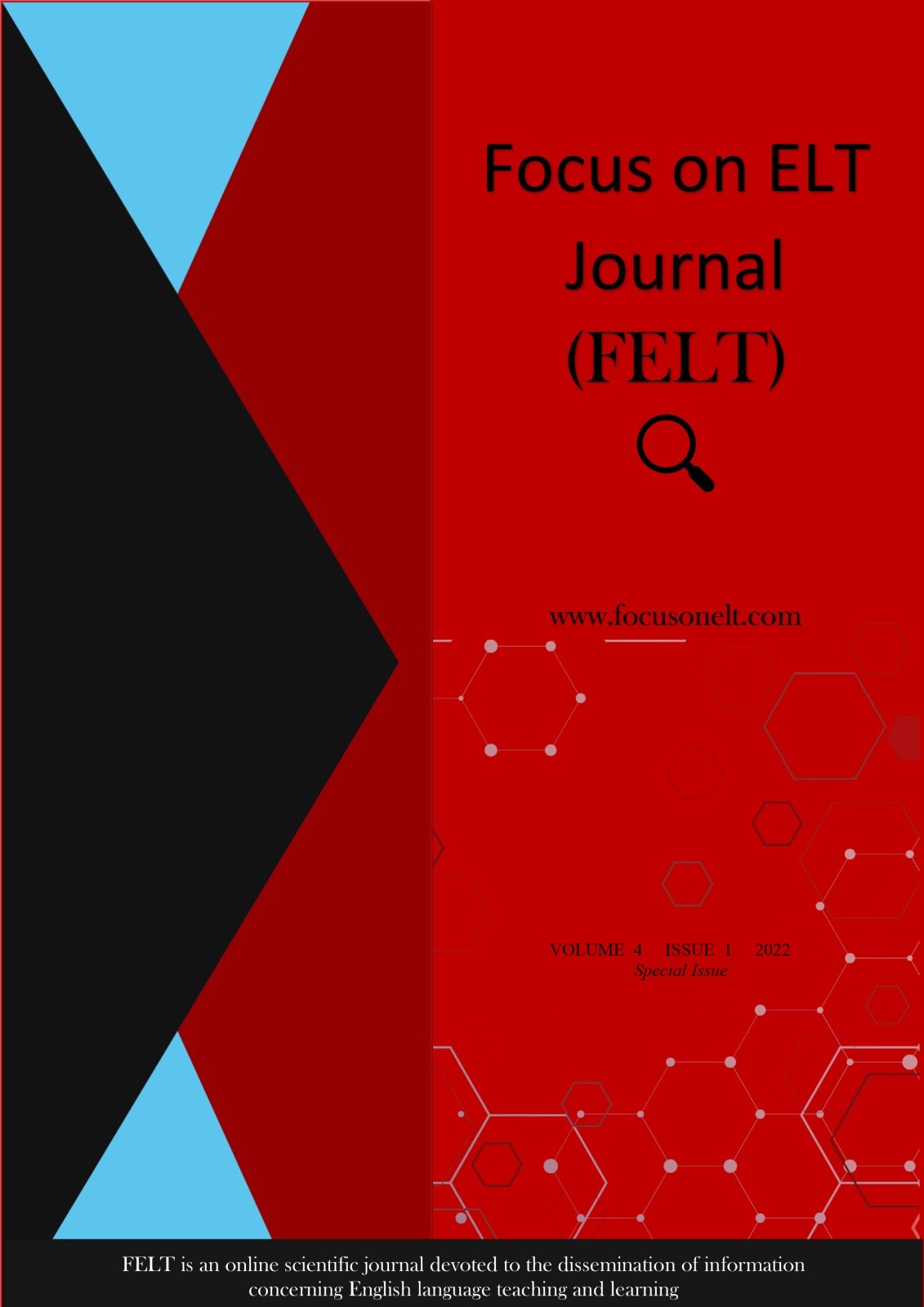From Practicum to Real Classroom: Does Experience Change Perceived Self-efficacy Beliefs of English Language Teachers?
Main Article Content
Abstract
The present study aimed to explore the changes in the perceived self-efficacy beliefs of English language teachers over a four-year period, from pre-service through in-service. With that aim in mind, the study aimed to shed light on the differences the actual teaching experience might create on the self-efficacy perceptions of EFL teachers. The data for the study were collected through The Turkish Version of The Teachers’ Sense of Efficacy Scale adapted from Çapa, et al. (2005). The scale was administered three times: before and after practicum and after four years of actual teaching experience. The findings of the study indicated a gradual increase in the participants’ efficacy levels in classroom management and instructional strategies over the course of time. However, the increase after four years of teaching was found to be more prevalent and remarkable.
Metrics
Article Details

This work is licensed under a Creative Commons Attribution-NonCommercial-NoDerivatives 4.0 International License.
References
Akbari, R., & Moradkhani, S. (2010). Iranian English Teachers’ self-efficacy: Do academic degree and experience make a difference? Pazhuhesh-e Zabanha-ye Khareji, 56, Special Issue, English, 25-47.
Aslan-Yazıcı, E. (2019). The role of teacher efficacy over English language teaching. International Journal of Educational Spectrum, 1(1); 36-47. Retrieved from http://www.idealonline.com.tr
Atay, D. (2007). Beginning teacher efficacy and the practicum in an EFL context. Teacher Development, 11(2), 203-219. https://doi.org/10.1080/13664530701414720
Balcı, Ö., Şanal, F., & Durak Üğüten, S. (2019). An investigation of pre-service English language teachers’ self-efficacy beliefs. International Journal of Modern Education Studies, 3(1), 41-53.
https://doi.org/10.51383/ijonmes.2019.35
Bandura, A. (1977). Self-efficacy: Toward a unifying theory of behavioral change. Psychological Review, 84(2),191-215. https://doi.org/10.1037/0033-295X.84.2.191
Bandura, A., & Adams, N. E. (1977). Analysis of self-efficacy theory of behavioral change. Cognitive Therapy and Research, 1(4), 287-310. https://doi.org/10.1007/BF01663995
Chacón, C. T. (2005). Teachers’ perceived efficacy among English as a foreign language teachers in middle schools in Venezuela. Teaching and Teacher Education, 21, 257-272.
https://doi.org/10.1016/j.tate.2005.01.001
Chiang, M. (2008). Effects of fieldwork experience on empowering prospective foreign language teachers. Teaching and Teacher Education, 24(5), 1270-1287. https://doi.org/10.1016/j.tate.2007.05.004
Çapa, Y., Çakıroğlu, J., & Sarıkaya, H. (2005). The development and validation of a Turkish version of teachers’ sense of efficacy scale. Eğitim ve Bilim (Education and Science), 30(137), 74-81.
Genç, G., Kuluşaklı, E., & Aydın, S. (2016). Exploring EFL learners’ PSE and beliefs on English language learning. Australian Journal of Teacher Education, 41(2). https://doi.org/10.14221/ajte.2016v41n2.4
Hoang, T., & Wyatt, M. (2021). Exploring the self-efficacy beliefs of Vietnamese pre-service teachers of English as a foreign language. System. 96, https://doi.org/10.1016/j.system.2020.102422
Kaygısız, S., Anagun, S. S., & Karahan, E. (2018). The predictive relationship between self-efficacy levels of English teachers and language teaching methods. Eurasian Journal of Educational Research, 78, 183-202.
Ma, K., Chutiyami, M., & Nicoll, S. (2021). Transitioning into the first year of teaching: changes and sources of teacher self-efficacy. The Australian Educational Researcher, 26, 6675-6697.
https://doi.org/10.1007/s13384-021-00481-5
Pfitzner-Eden, F. (2016). I feel less confident so I quit? Do true changes in teacher self-efficacy predict changes in pre-service teachers’ intention to quit their teaching degree? Teacher and Teacher Education, 55, 240-254. https://doi.org/10.1016/j.tate.2016.01.018
Swanson, P. (2013). From teacher training through the first year on the job: Changes in foreign language teacher efficacy. Electronic Journal of Foreign Language Teaching, 10(1), 5-16.
Tavil, Z. M. (2014). The effect of self reflections through electronic journals (e-journals) on the self efficacy of pre-service teachers. South African Journal of Education, 34(1), 1-20. https://doi.org/10.15700/201412120931
Tschannen-Moran, M., & Woolfolk Hoy, A. (2001). Teacher efficacy: capturing an elusive Construct. Teaching and Teacher Education, 17, 783-805. https://doi.org/10.1016/S0742-051X(01)00036-1
Wyatt, M. (2018). Language teachers’ self-efficacy beliefs: A review of the literature (2005-2016). Australian Journal of Teacher Education, 43(4), 92-120. https://doi.org/10.14221/ajte.2018v43n4.6
Yuan, R., & Lee, I. (2014). Pre-service teachers’ changing beliefs in the teaching practicum: Three cases in an EFL context. System, 44, 1-12. https://doi.org/10.1016/j.system.2014.02.002

